Faculty & Staff
Program Director - Sam Walcott
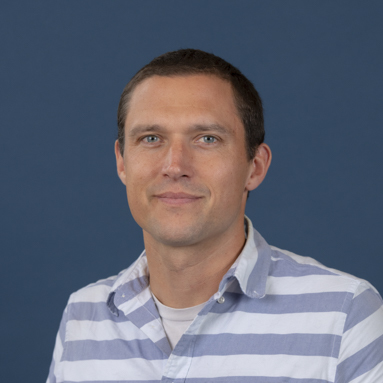
Email: swalcott@wpi.edu
Phone: +1 (508) 8315000 x6877
I use physical principles at the molecular scale to solve macroscopic problems in biology, e.g. How do a molecule's mechanical properties influence the behavior of a cell? How do single molecule measurements relate to muscle function? To answer such questions, I use a combination of computer simulations and mathematical analysis. This theoretical work is complemented by experiments performed by my collaborators. In my teaching, I enjoy emphasizing connections between math and other disciplines.
view profileAssociate Program Director - Elizabeth Ryder
Email: ryder@wpi.edu
Phone: +1 (508) 8315000 x6011
I have a long-standing interest in applying computer science and mathematics to solve biological problems. I am currently the Associate Director of WPI’s Program in Bioinformatics and Computational Biology, and I am always looking for students with interests in this exciting interdisciplinary area. One of my goals in teaching biology is to help students to think more quantitatively about biological questions. A few years ago, my colleague Dr. Brian White of UMass Boston and I were awarded a grant from the NSF to develop a course, “Simulation in Biology”. In this class, students use an approach ...
view profileBCB Steering Committee
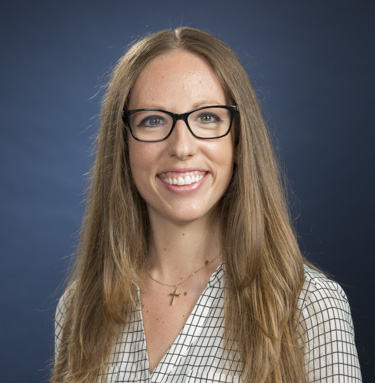
Email: anarnold@wpi.edu
Phone: +1 (508) 8315000 x6825
My research focuses on inverse problems and uncertainty quantification, incorporating elements of applied and computational mathematics, statistics, and scientific computing. Broadly speaking, inverse problems involve finding the unknown causes of observed effects, and uncertainty quantification plays a key role in understanding the reliability of predicted effects due to variability in the causes. In the problems that I consider, these causes are typically the unknown inputs (or parameters) of a system, and the effects are some partial, noisy observations of the system components. The ...
view profile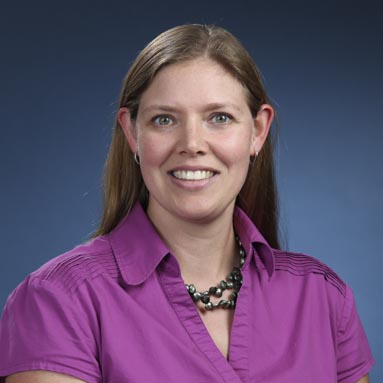
Email: nfarny@wpi.edu
Phone: +1 (508) 8315000 x6511
My lab works broadly in the emerging field of synthetic biology. Synthetic biology seeks to apply engineering design principles to the understanding and creation of biological systems. I use synthetic biology to design biosensors and bioremediation strategies for various environmental contaminants that impact human health, including lead, arsenic, and other toxic substances. We apply the tools of synthetic biology to address global challenges related to water, soil, and human health. Our water and soil applications focus around understanding how we can use genetically engineered microbes ...
view profile
Email: dkorkin@wpi.edu
Phone: +1 (508) 8315000 x4916
My research is interdisciplinary and spans the fields of bioinformatics of complex diseases, computational genomics, systems biology, and biomedical data analytics. We bring expertise in machine learning, data mining, and massive data analytics to study molecular mechanisms underlying genetic disorders, such as cancer, diabetes, and autism, and deadly infections, such as pandemic flu. Our approaches benefit from integrating multi-omic, systems, and structural biology data. We also develop hardware-optimized algorithms to understand the evolution of animal and plant genomes on the large scale. ...
view profile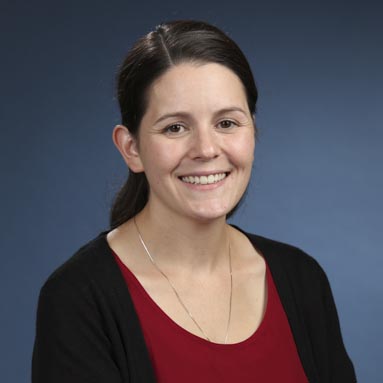
Email: almanning@wpi.edu
Phone: +1 (508) 8315000 x4961
Work in my lab is focused on defining the cellular mechanisms that maintain genome stability in normal cells and understanding how these pathways are corrupted in cancer cells. Genomic instability is a feature common in cancer that leads to aneuploidy and intra-tumor heterogeneity. Whole chromosome instability (CIN) results from underlying defects in mitotic chromosome segregation and leads to gains and losses of entire whole chromosomes. The ability of CIN cancer cells to ‘shuffle’ their genomic content can lead to gains of oncogenes, loss of tumor suppressors, and promotes tumor cell ...
view profile
Email: ruiz@wpi.edu
Phone: +1 (508) 8315000 x5640
Carolina Ruiz is the Associate Dean of Arts and Sciences and the Harold L. Jurist ’61 and Heather E. Jurist Dean's Professor of Computer Science. She joined the WPI faculty in 1997. Prof. Ruiz’s research is in Artificial Intelligence, Machine Learning, and Data Mining, and their applications to Medicine and Health. She has worked on several clinical domains including sleep, stroke, obesity and pancreatic cancer. Prof. Ruiz and her research group have developed novel, high-performing machine learning methods, including deep learning networks, for analyzing physiological sleep data; and machine ...
view profile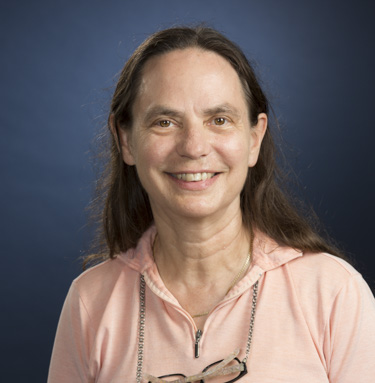
Email: bservat@wpi.edu
Phone: +1 (508) 8315000 x5361
What is a better way of learning, soaking knowledge up like a sponge or like a sieve? A sponge may be saturated quickly, while an appropriate sieve retains the valuable and discards the superfluous. The essence of teaching is to enable the student to recognize the jewels in a subject, unearth them, and create a valuable collection.
view profile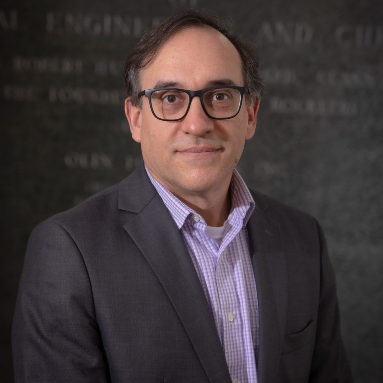
Email: lvidali@wpi.edu
Phone: +1 (508) 8315000 x4194
I deeply enjoy teaching, in particular conveying the important roles played by plants. It is a great reward when my students realize that plants are more complex and interesting than they anticipated, and they want to learn more. I enjoy that students at WPI are open about thinking in new ways; this critical thinking is the result of intense project-based learning. My research aims at understanding the molecular and cellular mechanisms underlying plant cell organization and growth, with the long-term goal of increasing plant productivity. I am particularly interested in understanding the ...
view profile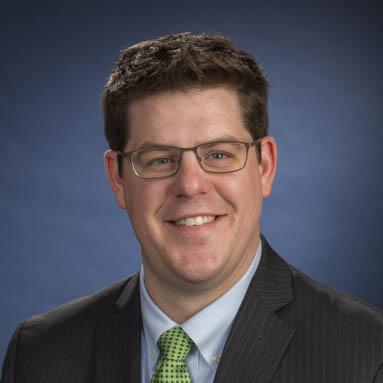
Email: emyoung@wpi.edu
Phone: +1 (508) 8315000 x6398
My research is in the broad, interdisciplinary field of synthetic biology, which applies engineering principles to biology. Within this field, we apply chemical engineering tenets to reprogram the DNA of yeasts, bacteria, and fungi so their metabolism produces interesting molecules. By treating these cells as "chemical factories," we can approach and solve problems in biofuels, biomaterials, and biosensors from a chemical engineer's point of view. Our strengths are in the disciplines of metabolic engineering, protein engineering, and systems biology, which we use to construct novel synthetic ...
view profileBCB Faculty

Email: emmanuel@wpi.edu
Phone: +1 (508) 8315000 x5568
Emmanuel Agu is currently a professor in the computer science department at WPI having received his Masters and PhD in electrical and computer engineering at the University of Massachusetts at Amherst. His research interests are in the areas of computer graphics, mobile computing, and wireless networks. He is especially interested in research into how to use a smartphone as a platform to deliver better healthcare. In collaboration with researchers at WPI and at UMass Medical School, he is currently working on NIH-funded research project to create a mobile application for chronic wound care ...
view profile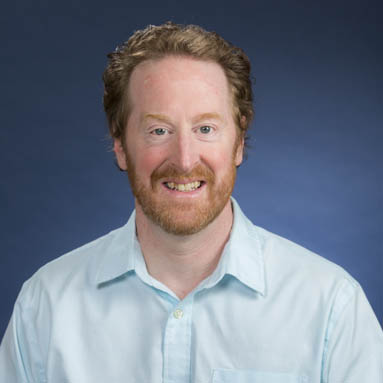
Email: jduffy@wpi.edu
Phone: +1 (508) 8315000 x5579
Defining signaling pathways that program cellular diversity is one of the foremost problems in biology and is central to my research interests. In the lab we use molecular, genetic, and biochemical approaches to characterize the function of these pathways and to gain insight into their role in disease. To date, the lab has focused on the Epidermal Growth Factor Receptor network, a principal therapeutic target for a variety of human cancers. This work involved the characterization of Kekkon1 (Kek1), an archetypal LIG molecule, as a novel feedback inhibitor of the EGFR network. ...
view profile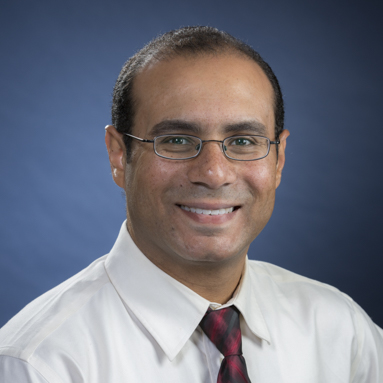
Email: meltabakh@wpi.edu
Phone: +1 (508) 8316421
Professor Eltabakh’s research is in the broad area of Database Management Systems and Information Management. In particular, his work is in the areas of query processing and optimization, indexing techniques, scientific data management, and large-scale data analytics. Prof. Eltabakh is currently exploring possible extensions to both database management systems and Hadoop framework to support scientific applications and health-care systems. He is a member of the Database Systems Research Group (DSRG) and a faculty member of the Bioinformatics and Computational Biology (BCB) program. At the ...
view profile
Email: ltharrison@wpi.edu
Phone: +1 (508) 8315000 x5952
Information visualization is a powerful means for understanding data and informing human minds. As people begin to rely on visualizations to make high-impact and even life-critical decisions, there is a growing need to ensure that information can be perceived accurately and precisely. My research addresses these challenges by leveraging cognitive and perceptual principles to quantify and model user performance with visualizations. Results from these projects have led to visualization design guidelines in domains such as cyber security and health-risk communication, as well as a better ...
view profileEmail: martin@wpi.edu
Phone: +1 (508) 8315000 x6764
Bill Martin's goal is to find mathematical research projects that lie between beautiful and powerful mathematical theory, on the one hand, and pressing technological applications, on the other. This effort requires one to keep abreast of both mathematical developments and applications in computer science and engineering. Professor Martin's mathematical research is in the area of algebraic combinatorics, where tools from linear and abstract algebra are applied to problems in discrete math. An association scheme is a collection of graphs, which give rise to a highly structured matrix algebra ...
view profile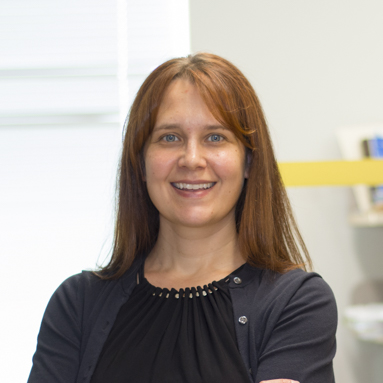
Email: aemattson@wpi.edu
Phone: +1 (508) 8315000 x6861
Research in the Mattson Group is a combination of catalyst design, methodology development, and complex molecule synthesis. Our catalyst design program is focused on the synthesis and study of new families of non-covalent catalysts, including boronate ureas and silanediols, that are able to promote new reactivity patterns. The catalyst design and associated reaction development programs are currently geared toward the synthesis of enantioenriched nitrogen and oxygen heterocycles that frequently appear in naturally occurring bioactive compounds. Our long-term vision includes applying our ...
view profile
Email: rcpaffenroth@wpi.edu
Phone: +1 (508) 8315000 x6562
My research focuses on compressed sensing, machine learning, signal processing, and the interaction between mathematics, computer science and software engineering. My interests range from theoretical results to algorithms for tackling practical applied problems, and I enjoy problems most when mathematical results lead to efficient software implementations for big data. I am looking forward to working with students at all levels and backgrounds who share an interest in mathematics, software, or data. Some problems that have captured my interest include network analysis for cyber defense, and ...
view profile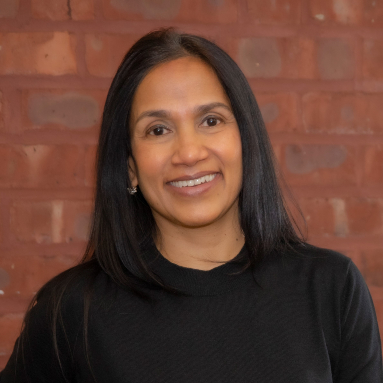
Email: rpr@wpi.edu
Phone: +1 (508) 8315000 x6120
A member of the WPI faculty since 2004 and chair of the Department of Biology and Biotechnology since 2022, Reeta Rao is a leader in the field of molecular genetics and genomics. Her primary research activities are focused on emerging infectious diseases, specifically understanding and managing fungal diseases. Students and research associates in her laboratory are trained to use a variety of biochemical, molecular-genetic, and genomic tools to study host-microbe interactions to explore fungal virulence strategies and identify novel therapeutics in a high throughput fashion. ...
view profile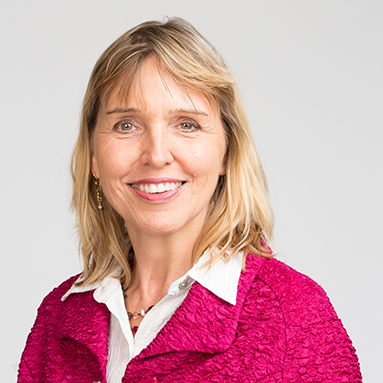
Email: rundenst@wpi.edu
Phone: +1 (508) 8315000 x5815
As founding Head of the interdisciplinary Data Science program here at WPI, I take great pleasure in doing all in my power to support the Data Science community in all its facets from research collaborations, and new educational initiatives to our innovative industry-sponsored and mentored Graduate Qualifying projects at the graduate level.Having served as the primary advisor and mentor of over 43 Ph.D. students who have secured successful professional careers in computing, I'm proud of all the great accomplishments of students I have had the opportunity to collaborate with. With an h-index of ...
view profile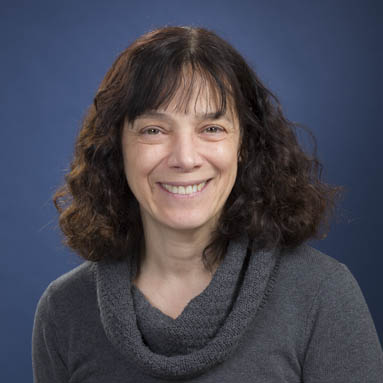
Email: sfscarlata@wpi.edu
Phone: +1 (508) 8315000 x6803
Suzanne Scarlata, Richard Whitcomb Professor of Chemistry and Biochemistry, joined the university faculty in 2016. She studies how small molecules in the bloodstream can change the behavior of cells. In particular, she is interested in how certain hormones and neurotransmitters can activate a family of organic molecules known as G proteins (guanine nucleotide-binding proteins), which are involved in transmitting signals from various stimuli from the exterior to the interior of cells. G proteins help control how cells move, divide, and change structure; the signaling pathways they mediate ...
view profile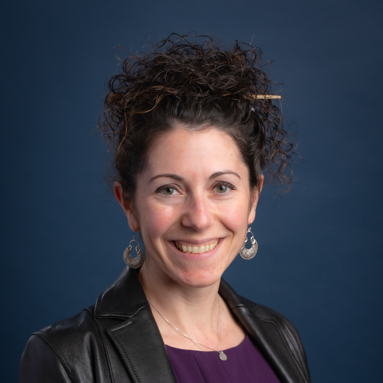
Email: sshell@wpi.edu
Phone: +1 (508) 8315000 x5917
I have a passion for understanding how living systems work, as well as for sharing my love of biology and research with the next generation of scientists and informed citizens.The central goal of my lab is to understand the regulatory mechanisms that underlie mycobacterial stress tolerance. We combine genetics, genomics, transcriptomics and biochemistry to understand how mycobacteria respond to, and ultimately survive, stressful conditions.Our guiding principles are curiosity, respect, and scientific rigor. Together we strive to push the boundaries of knowledge and advance our field by ...
view profile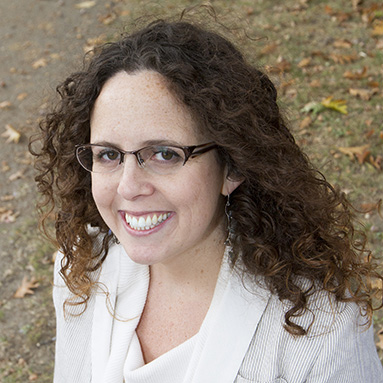
Email: esolovey@wpi.edu
Phone: +1 (508) 8315000 x6936
My research is in human-computer interaction and human-AI interaction. One focus of my research is on next-generation interaction techniques, such as brain-computer interfaces, physiological computing, textile sensing, radar sensing, and reality-based interaction. My students and I design, build and evaluate interactive computing systems that use machine learning approaches to adapt and support the user’s changing cognitive state and context. I also investigate novel paradigms for designing with accessibility in mind, particularly for the Deaf community. Much of my work also explores ...
view profile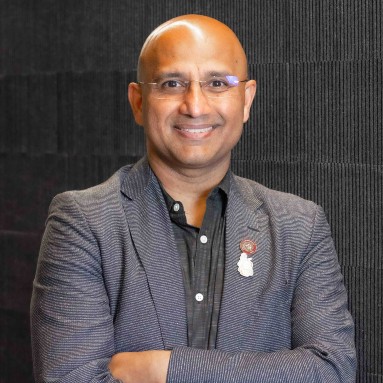
Email: jsrinivasan@wpi.edu
Phone: +1 (508) 8315000 x6564
It has been my lifelong dream to become a professor in the field of Biology. Being a faculty member provides a great opportunity to teach and interact with students. Students by nature are highly inquisitive and motivated, and as teachers, we have the responsibility to guide our students to explore and think in new ways. I believe that teaching is a two-way interaction between teachers and students. I come from India and my parents, both of whom were teachers, taught me to strive for excellence in my scholarly pursuits. Science bears no geographical barriers and my academic training has taken ...
view profile
Email: dtang@wpi.edu
Phone: +1 (508) 8315000 x5332
I have been teaching and conducting research at WPI since 1988. Teaching is a lot of fun since it involves interactions with students, and we can pass our knowledge and experiences to students for their better future. I have been conducting research for cardiovascular modeling in the past 30 years and has made various contributions, especially in using image-based modeling for vulnerable plaque progression and rupture investigations. I collaborate with faculty from many universities, including Harvard, MIT, University of Washington (Seattle), Washington University (St. Louis), Emory ...
view profile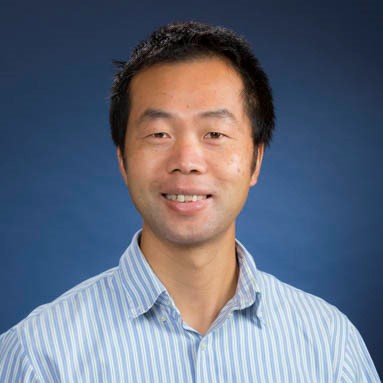
Email: qwen@wpi.edu
Phone: +1 (508) 8315000 x4932
Professor Wen is an experimental biophysicist who is interested in applying physical methods to understand biological phenomena. By measuring the mechanical properties of living cells and the mechanical interaction between cells and ECM, he aims to understand how cells convert external mechanical signals to internal biochemical signals that govern cellular function, including cell morphology, migration, and differentiation. His research will help to design novel materials for wound healing, tissue engineering, and tumor treatment.Professor Wen is leading a research group with students from ...
view profile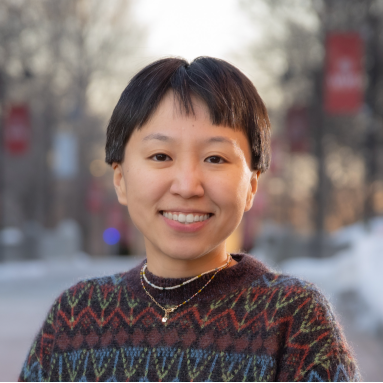
Email: mwu2@wpi.edu
Phone: +1 (508) 8315000 x6377
My research involves analysing size and shape development in biological processes. The form of living systems can be affected by growth and internal force, so it is important to know how they are patterned spatial-temporally. To do this, I develop deterministic approximate inference schemes using static and live imaging data; and develop mathematical models and numerical methods to describe tissue growth and morphogenesis. My research at WPI has attracted interest from all levels of students, and they have become enthusiastic and creative contributors.
view profile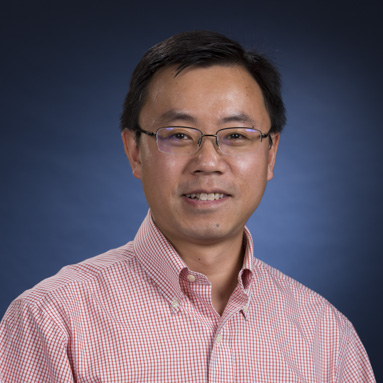
Email: zheyangwu@wpi.edu
Phone: +1 (508) 8315000 x5031
Professor Wu's research interest lies in applying the power of statistical science to promote biomedical researches. In statistical genetics, he is developing novel statistical theory and methodology to analyze genome-wide association (GWA) data and deep (re)sequencing data to hunt new genetic factors for complex human diseases. In epigenetics, he is studying gene expression regulation mechanisms through chromatin interaction, and RNA silencing pathways in the developmental stages of germ-line cells. In clinical studies, he is establishing statistical models to predict carotid atherosclerotic ...
view profile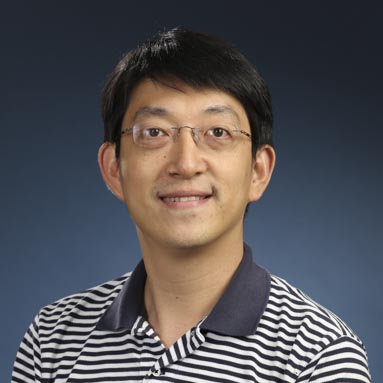
Email: jzou@wpi.edu
Phone: +1 (508) 8315000 x6428
Professor Zou's research focuses on financial time series and spatial statistics with applications to epidemiology, public health and climate change. His most recent research on statistical theory and methodology addressed a wide range of challenges including high dimensionality, complex dependencies, and space and time variations. His research in high-frequency financial data tackled problems with high dimensionality, which is currently a hot topic in statistics. He also works on developing novel spatio-temporal models that provide early and accurate detection of disease outbreaks using ...
view profile